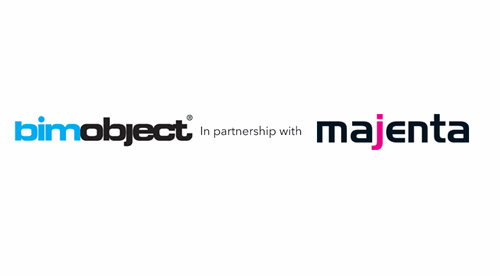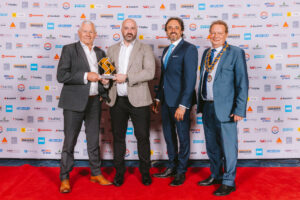According to David Jellings Managing Director at BIMobject UK, which is Headline Sponsor of the RSG Suppliers Conference, we should view BIM as business process first and foremost.

Eight years after the Government laid out its BIM strategy, BIM is still misunderstood. Building Information Modelling is a business process that uses digital technology to promote collaboration and communication, clarify activities, reduce errors and help on time delivery and target costs. It is not software.
Part of the technology required to deliver BIM is indeed design software, but for many stakeholders in the process, BIM can be incorporated into day to day working with communication and viewing tools, many of which are free to access and use.
BIM is here to stay
Post 2011, there was a widely held belief that BIM was a ‘flash in the pan’ and would eventually go away. It was considered to be an expensive distraction to an industry steeped in traditional ways of working. In consequence, some paid lip service to the challenge and did the minimum they felt was required to tick the compliance box.
More recently this attitude is changing as industry realises that the process is in fact helping and improving the way we work. This is proven by the actions of bigger players in design, engineering and contracting communities—for whom BIM is now the order of the day. However, it is not yet fully reflected by the wider supply chain, including manufacturers, who are yet to wholly embrace BIM.
But the end is nigh for the ‘not for us’/’tick in the box’ approach to BIM. Led by the largest client body—government—our industry is digitising, and BIM is fundamental to the wider process. BIM is here to stay. This message will be explored at the November 2019 RSG Suppliers Conference.
BIM requires new skills and mindsets
Digital technology requires digital proficiency, which in turn necessitates appropriate skill sets. But first and foremost, the process requires a definite mindset at all levels of business. This is particularly pertinent at the most senior levels, since such a radical change cannot take place without commitment and leadership from the top.
The good news is that help is available. Education providers are developing training for many of the key skills required in both general and industry specific roles. This is supplemented by government and NGO activities, some of which will be introduced and discussed at the conference.
BIM can (and should) have a positive impact on your bottom line
At the conference real and perceived issues embedded in the ‘path to BIM’, will be explored. My presentation will focus on ways to produce real and measurable ROI, supported by case study.
The industry is digitising—fact. To meet the challenge, new methods of working and revised skill sets are a necessity. Those who embrace this digital opportunity should see a bright future.
If you are attending the conference, I look forward to meeting you on 28 November 2019, at the Institute of Directors, in London. I will be available to discuss questions relating to how digitisation may affect your business.
Tickets are available for NFRC supplier members to attend the RSG Suppliers Conference and Dinner on 28 November 2019.
Tickets are limited to two senior representatives per company.



